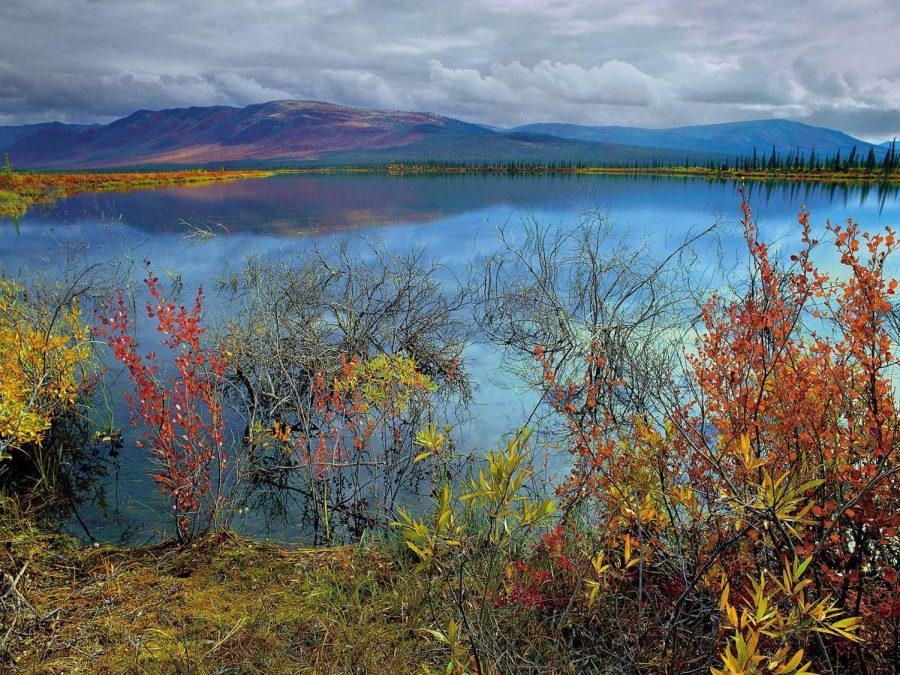Opinion | Arctic Refuge must remain protected from oil drilling
Subhankar Banerjee, Seattle Times | TNS
The Trump administration announced Thursday its final plan to open Alaska’s Arctic National Wildlife Refuge to oil drilling.
August 21, 2020
Secretary of the Interior David Bernhardt announced Monday that the Trump administration would, unsurprisingly, once again roll back environmental protections.
Specifically, the administration plans to strip protections from a 1.5 million acre coastal plain in the Arctic National Wildlife Refuge — containing, in total, over 19 million acres of protected land — and allow oil companies to lease the land for drilling.
These plans, while controversial and likely to spark legal countermeasures, are not at all shocking. This is a problem — the plans carelessly put a vulnerable ecosystem at risk in a move that is characteristic of the current administration.
For the past four years, the Trump administration has rolled back environmental regulation after environmental regulation, slowly stripping what little wilderness our nation has left of the protection it so desperately needs given our current climate crisis. Thus far, 2020 is on track to be the second hottest year on record, and we’re only three-fourths of the way through.
Despite this, the Trump administration is eager to begin leasing out sectors of a protected wildlife refuge for oil drilling. This is a ridiculous choice, given that fossil fuel consumption is a main cause of climate change. Additionally, oil drilling will inevitably be disruptive to the environment where it occurs, and legislators have raised concerns about the environmental impact assessment — it was completed much faster than usual assessments, and some are concerned the report downplays the true risks of drilling.
On top of the environmental consequences of drilling, there are potential risks to the wildlife that lives in the refuge, as well as to the wildlife that migrates through the refuge. With the oil industry comes disturbances to these animals’ natural habitat, including seismic activity and noise pollution from aircraft and trucks.
The drilling itself isn’t even promised to be profitable. It is estimated that there are “billions of barrels” of oil under the coastal plain of the refuge, though there is no guarantee that this is true. Seismic tests were conducted in the ‘80s to determine the size and location of potential oil deposits, but the technology was not advanced enough to provide exact data on how much oil is available.
Continuing to rely on fossil fuels, and actively seeking them out, is wrong. I shouldn’t even have to say that at this point. But what’s worse is extracting fossil fuels from the Arctic, an area that is already experiencing heavy effects of climate change and has the potential to accelerate the rate of our planet’s warming.
A Siberian town within the arctic circle, Verkhoyansk, saw temperatures reach a record-breaking 100 degrees Fahrenheit this June. While the area is prone to extreme temperature fluctuations, the average high temperature in Verkhoyansk for June is only 68 degrees Fahrenheit.
Suffice it to say, the stark difference between the average high temperature and this June’s record high is concerning — even more so considering the positive feedback loop that Arctic warming creates.
As the Arctic Circle warms, the permafrost — permanently frozen ground — thaws. This releases the greenhouse gasses trapped within, and allows large amounts of carbon dioxide and methane gas to enter the atmosphere. This, of course, contributes to the greenhouse effect which accelerates global warming, thus continuing the positive feedback loop.
Knowing that this is a vicious cycle makes it even more concerning that the Trump administration has authorized the 1.5-million-acre coastal plain to be leased for drilling. Though they want to ignore the facts of the matter, their plan would contribute to and accelerate climate change.
Now, as they drop protections on a wildlife refuge that has been untouched by industry since its establishment in 1960, it is up to us to do what we can to stop them. We cannot let them get away with this any longer. Though these policies aren’t something that we, as individuals, can directly impact, we have the power to vote this administration out in November.
Paige writes primarily about environmental policy and politics. Write to her at PML36@pitt.edu.



